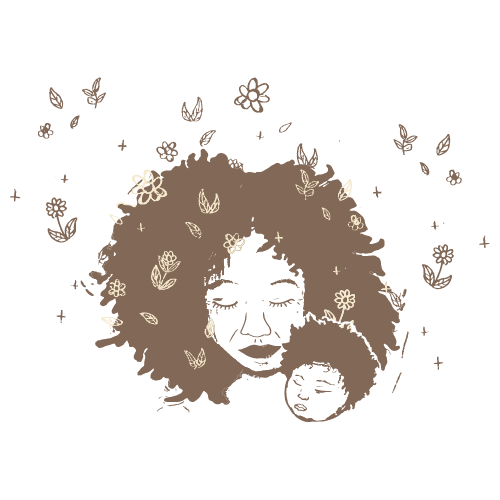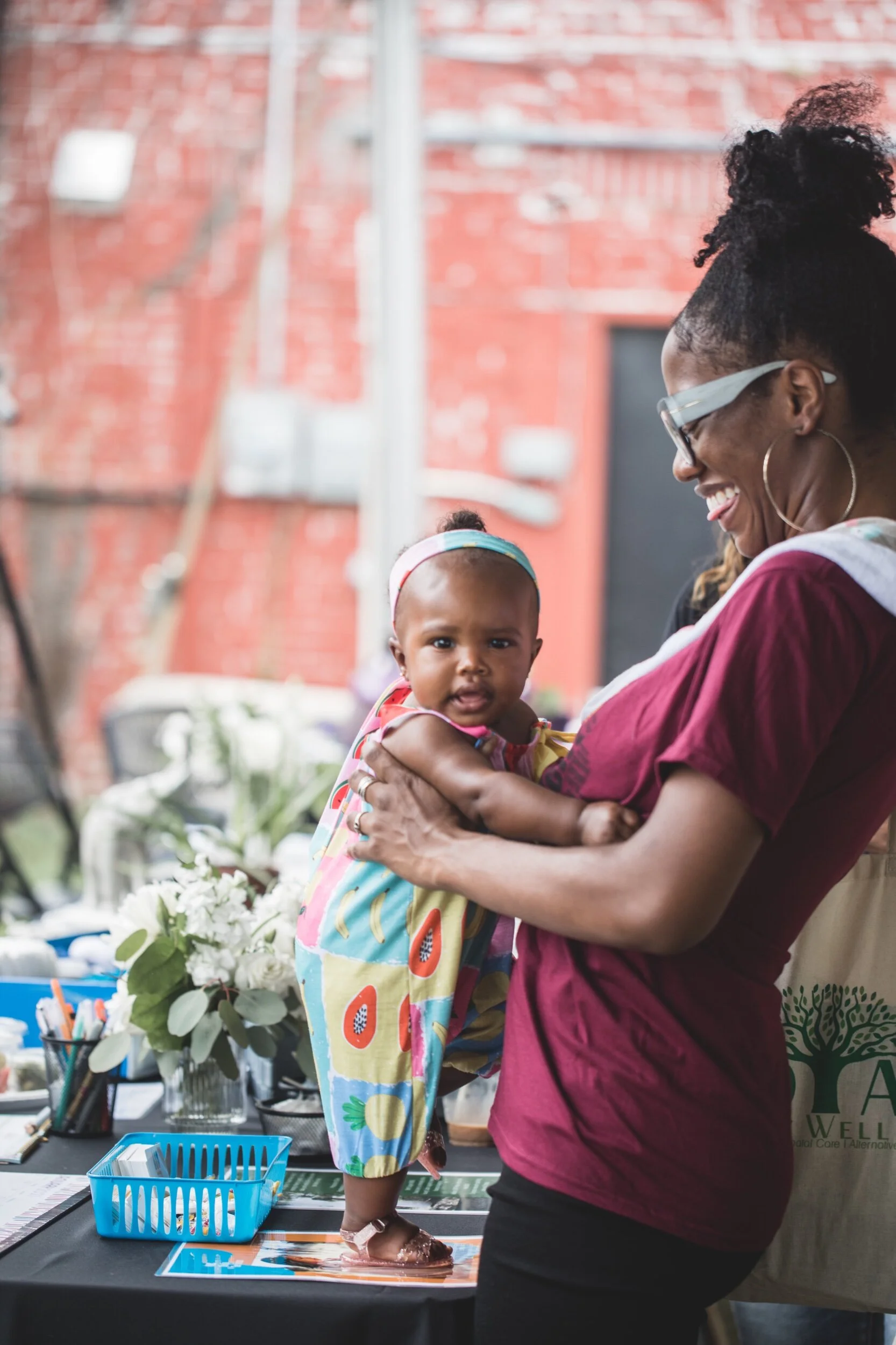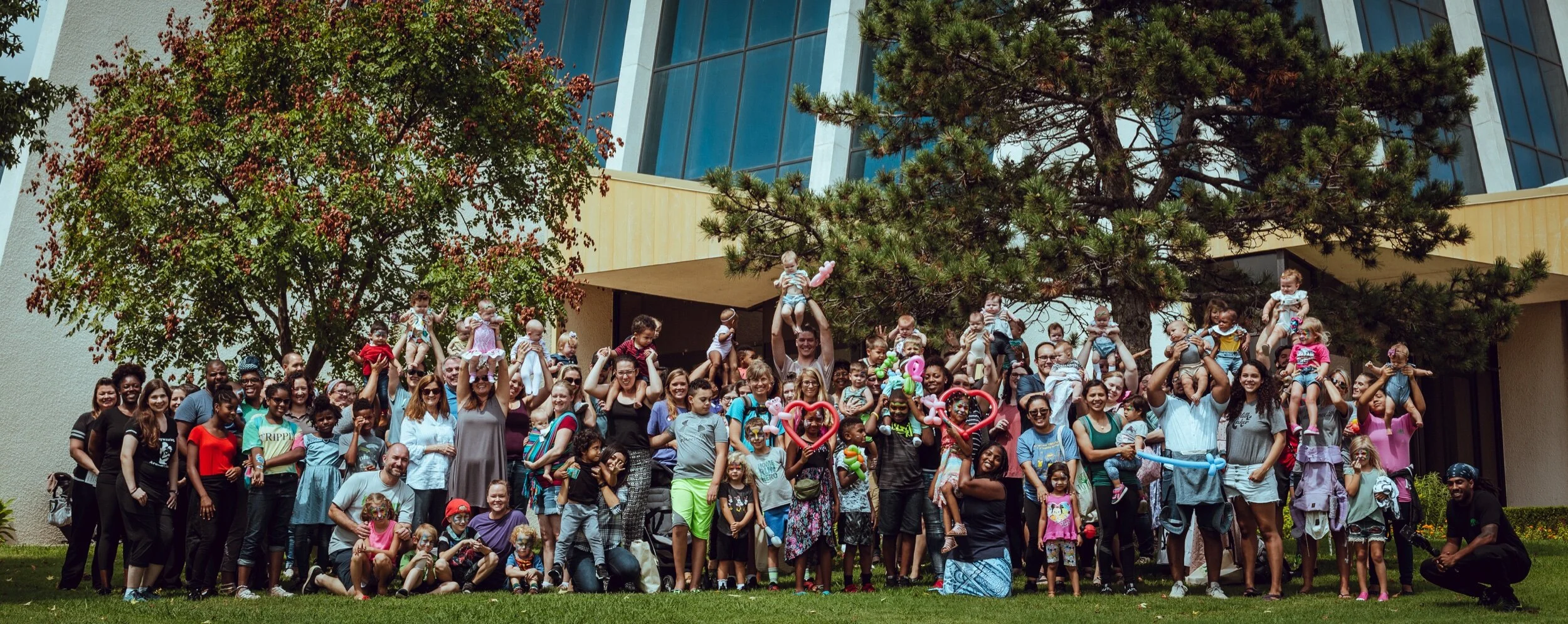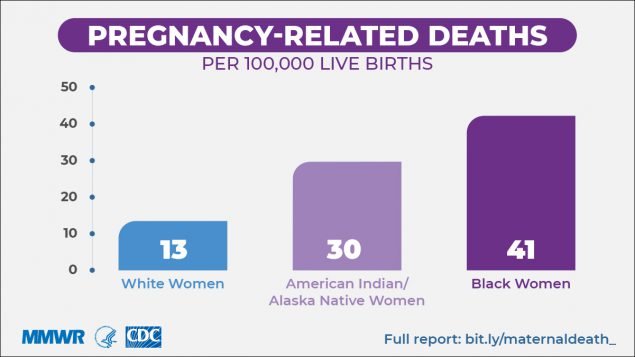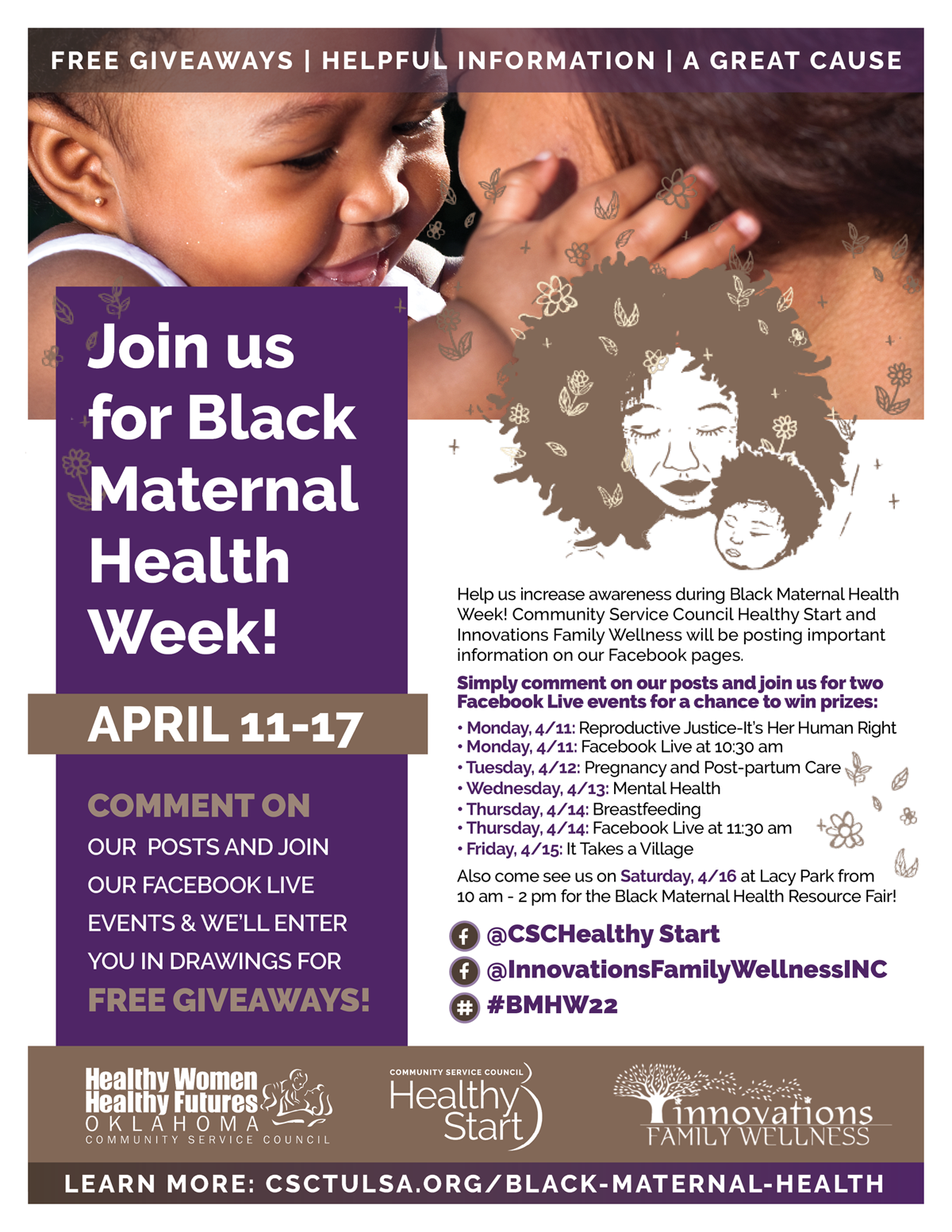Black Maternal Health Week 2022
Black Maternal Health Week is April 11 – 17. It was founded by the Black Mamas Matter Alliance to deepen the national conversation about Black maternal health.
Black women’s risk of maternal mortality has remained higher than white women’s risk for the past six decades.
Follow us on Facebook at @InnovationsFamilyWellnessINC for giveaways all week as we increase awareness around Black maternal health complications in Oklahoma. #BlackMaternalHealthWeek #BMHW22
ABOUT BLACK MATERNAL HEALTH WEEK
The month of April is recognized in the United States as National Minority Health Month – a month-long initiative to advance health equity across the country on behalf of all racial and ethnic minorities. Here at Innovations Family Wellness, we hope to spread awareness of the importance of making changes to our healthcare system in effort to lower the Black maternal mortality rates in Oklahoma.
According to the U.S. Centers for Disease Control and Prevention (CDC), Black women experience pregnancy-related deaths at 3-4 times the rate of white women. In Oklahoma, the Black maternal mortality rate is higher than that of the nation.
THE FACTS:
Black women’s maternal mortality has remained higher than white women’s risk for the past six decades. Maternal mortality is defined by the World Health Organization as “the death of a woman while pregnant or within 42 days of termination of pregnancy, irrespective of the duration and site of the pregnancy, from any cause related to or aggravated by the pregnancy or its management but not from accidental or incidental causes.”
Black women are also more likely than white women to experience complications that are pregnancy and/or birth-related. In Oklahoma, black women account for 10% of the births statewide but make up over 22% of all maternal deaths. (Oklahoma State Department of Health).
According to the U.S. Centers for Disease Control and Prevention (CDC), Black women experience pregnancy-related deaths at 3-4 times the rate of white women. A growing body of evidence indicates that stress from racism and racial discrimination influences maternal mortality and morbidity among Black women, regardless of their socio-economic, education or health status.
Despite advances in medical technology and increased spending on health care, maternal mortality has increased for all women in the U.S. Approximately 700 women die each year during pregnancy or delivery-related complications. (This is the equivalent of four 737 planes crashing.) Often these deaths are preventable.
Below are resources for Black providers in the Tulsa Metro. As of now, Tulsa does not have a licensed Black midwife. There is a disparity when it comes to Black providers in the Tulsa Metro and even statewide. According to the CDC, “Black women are three times more likely to die from a pregnancy-related cause than White women. Multiple factors contribute to these disparities, such as variation in quality healthcare, underlying chronic conditions, structural racism, and implicit bias. Social determinants of health prevent many people from racial and ethnic minority groups from having fair opportunities for economic, physical, and emotional health.”
In addition, the Tulsa Equality Indicators state the following: “The infant mortality rate, often used as an indicator of the overall health of a community, exhibits intense and persistent racial disparity. Infant mortality continues to devastate African American communities at significantly higher levels than other populations across the nation, even when socioeconomic status and environmental characteristics are held constant. Many researchers believe this relentless disparity is the result of both generational trauma associated with historic racial discrimination and present-day racism in general and specifically in the healthcare system.”
Here at Innovations Family Wellness, we are looking to close this gap by training Black providers in effort to reduce Black maternal mortality rates as well as other women of color.
TULSA RESOURCES FOR BLACK MATERNAL HEALTH
Breastfeeding Support
3336 East 32nd Street Suite 107, Tulsa OK 74135
918-398-3586
1120 South Utica Avenue, Tulsa, OK 74120 |
8801 South 101st East Avenue, Tulsa, OK 74133 |
12012 N. Muskogee Place, Tulsa, OK 74104
918-579-8018
6161 South Yale Avenue, Tulsa, Oklahoma 74136
918-494-6455
Ascension St. John Center for Women's Health
1923 South Utica Avenue 6th Floor Tulsa, OK 74104
918-744-2424
Oklahoma Breastfeeding Hotline
Call: 1-877-271-6455
Text: OK2BF to 61222
Mental Health
Healthy Women, Healthy Futures
Brandi Cannon, LMFT, CLC, PMH-C
Behavioral Health Care Coordinator
Community Service Council
918-894-1475
Cornerstone Christian Counseling
4930 South Sheridan Road, Tulsa, OK 74145
918-392-4008
Parkside Psychiatric Hospital & Clinic
1239 South Trenton Avenue, Tulsa, OK 74120
918-588-8888
1055 South Houston Avenue, Tulsa, OK 74127
COPES – 918-744-4800
2325 South Harvard Avenue, Tulsa, OK 74114
918-712-4301
9717 East 42nd Street #201, Tulsa, OK 74146
918-270-4100
Perinatal Care
Healthy Start Program
Community Service Council
1604 S. Baltimore Ave., Tulsa, OK 74119
918-855-3892 or 918-899-1129
Special Delivery Midwifery Care
4926 East 73rd Street, Tulsa, OK 74136
918-477-9343
Home Based Services
918-304-8122
5750 East 31st Street, Tulsa, OK 74135
918-932-8164
4800 West San Antonio Street, Broken Arrow, OK 74012
918-250-2229
6126 East 61st Street, Tulsa, OK 74136
918-281-2575
717 South Houston Avenue #200, Tulsa, OK 74127
918-586-4500
Doulas
2232 South 137 East Avenue, Tulsa, OK 74134
918-282-9033
305-302-9472
mamaowon@gmail.com
info@tulsabei.org
simplyrootedwellnessllc@gmail.com
Sisters in Loss Doula Services
erica@sistersinloss.com
918-902-0168
918-720-4079
Bolded providers are specifically Black providers.
Large health groups are not bolded due to the array of providers offered, this does not mean that they do not have providers of color.
Sources:
https://csctulsa.org/tulsaei/
https://www.cdc.gov/healthequity/features/maternal-mortality/index.html
